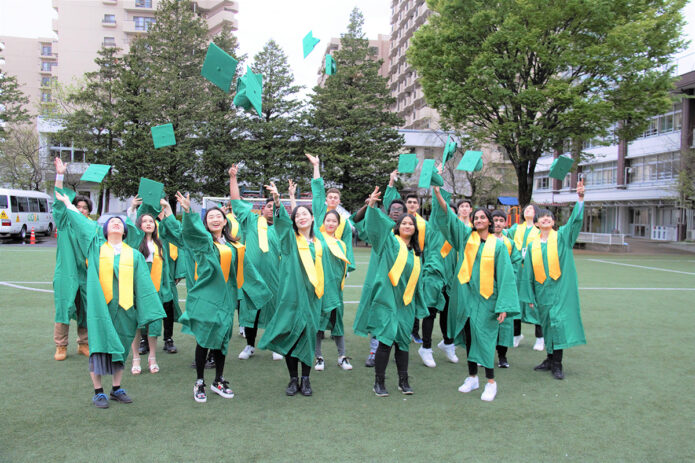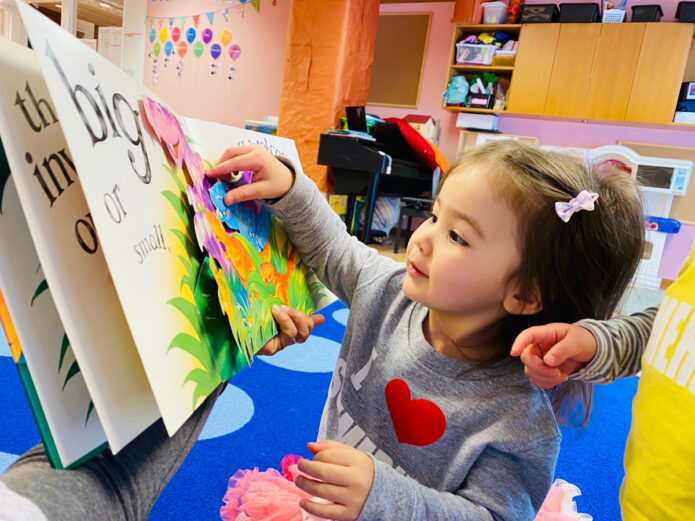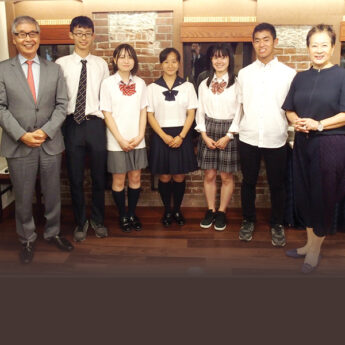A child’s education is considered one of the most important decisions a parent can make. Parents want to be able to ensure that their child is well taught and fully qualified to take on their further education and, eventually, their careers. The style of education, curriculum and extracurricular activities are all important aspects of the learning experience, and multiple international schools throughout Japan acknowledge how important it is to prepare children for the future.
BCCJ ACUMEN spoke with Dr Ken Sell, head of school at Aoba-Japan International School; Yoshino Plaza, director of Summerhill International School; and Dr Robin Lister, the regional executive advisor of Malvern College International (Asia-Pacific) about curriculums, and the importance of independent learning and entrepreneurship.

Aoba-Japan International School students celebrate on graduation day.
From the start
While the qualifications and advanced study at senior schools are of importance, a child’s learning journey starts at primary school. Summerhill became an accredited International Baccalaureate (IB) school in 2018. The school offers the Primary Years Programme (PYP) curriculum for the K3 class (age 3–4), all the way through to K5 (age 5–6).
K1 (age 1–2) and K2 (age 2–3) classes reference the PYP framework and use the Early Years Foundation Stage to assess the learning development of students. “We believe that we are instilling the necessary skills, concepts and knowledge required for students to strive beyond school life, which are all reflected in the standards and practices of the IB curriculum”, said Plaza.
Certain subjects, such as science, technology, engineering, art and mathematics (STEAM) hold value in the modern world. Jobs within these fields are secure and the amount of opportunity is continually growing. It is important for children to have access to detailed learning in these subjects from a young age, providing them with a solid basis for their further education. At Summerhill, STEAM is integrated into the lessons. Plaza explained how the school recognises the changes occurring as we merge into a digital world.
“It is important for teachers and students to gain the necessary knowledge, skills and concepts to enforce positive learning in the digital age. For example, in the K5 classroom, activities and lessons are taught through a Smart Board. Students also have access to an iPad where they can engage in education apps and games”.
Plaza acknowledged the crucial role technology played during the Covid-19 pandemic. She said: “We offer blended learning for students who wish to learn from home and are also prepared to switch to online learning if situations are called for”.
Real-world
Another international school that provides a varied education is Aoba. When asked about their choice in the curriculum—both the IB and Global Leadership Diplomas (GLD)—Dr Sell explained how visiting schools such as St. Clare’s, Oxford, in England, helped Aoba develop its learning plans. “We deliver the IB curriculum from nursery to secondary. When joining the senior school, our students have a year to decide the graduation pathway that suits them. They can choose the internationally recognised IB Diploma or the GLD.
“All senior school students participate daily in an advisory programme that, among other things, guides students through the university application process. We adopt a tailor-made approach to ensure we meet the requirements of each tertiary education system. Pleasingly, elite UK and US universities have accepted our students”, said Dr Sell.
Many educators recognise the importance of real-life experiences to prepare students for their lives after school and university. Dr Sell explained how Aoba does this.
“Our students can take part in internships with companies located in Tokyo and are provided with opportunities to participate in the Youth Leadership in Global Health programme in partnership with the Global Public Service Academy and our social entrepreneurship collaboration with an international organisation called ygap”.
The emphasis placed on entrepreneurship shines through in the students’ academic performances. “Many of our school community are entrepreneurs, business leaders or performing artists. This means some students have opportunities to choose diverse post-school pathways. While at school some students initiated entrepreneurial projects that they continued after graduating. These projects included a non-profit organisation to support orphans in an Asian country; another student founded a stock market trading company, while another developed a system to help students choose universities that fit their dispositions and needs”, he explained.

Classes at Summerhill International School encourage independent learning.
Entering the fold
Malvern College is a coeducational day and boarding school in Worcestershire, England, and has multiple schools across China, Hong Kong and Switzerland opened by Malvern College International. Joining the community of well-established and successful international schools in Tokyo is Malvern College Tokyo, set to open its doors in September 2023. Students at Malvern College Tokyo will have the opportunity—travel restrictions allowing—to spend up to a term abroad at another international campus.
In terms of the curriculum that Malvern College Tokyo aims to offer, Dr Lister said: “We will be offering the IB curriculum at all levels in the school: Primary, Middle and Sixth Form”.
The school aims to provide an extremely advanced STEM-focused curriculum to its students, focusing on entrepreneurship: “[STEM is] where Malvern’s emphasis on an entrepreneurial spirit comes in to play. For example, encouraging pupils to put into action what they are learning in science, in using technology and seeing how understanding mathematical principles may be used to solve day-to-day problems. Older pupils in the Middle Years and Diploma programmes are also given different opportunities to put theory into practice. Alongside these more formal approaches, we also have pupils starting up small businesses and making connections with the local community—particularly local charities”, explained Dr Lister.
He also spoke on the qualities that need to be nurtured and incorporated to aid students in their journey through education, and eventually in their careers. “Embrace change and don’t be afraid of challenges. Take well-managed risks when these might be necessary”.






